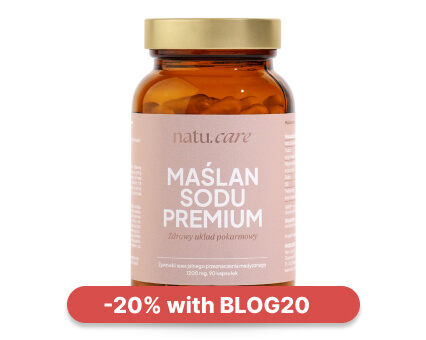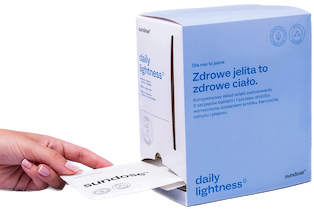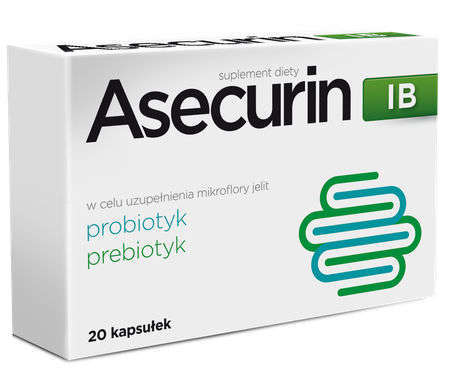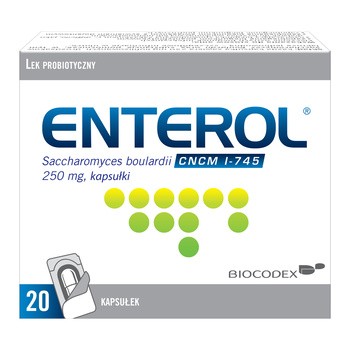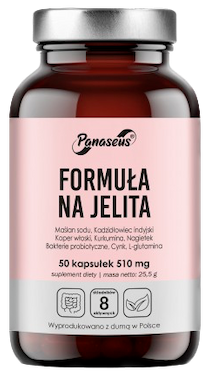Best probiotics for IBS, diverticulitis, and leaky gut 2025
Find out how probiotics can help you with intestinal ailments.


Learn more about our editorial process
.

Learn more about our editorial process
.

Learn more about our editorial process
.

Learn more about our editorial process
.
Why you can trust us
Articles on Natu.Care are written based on scientific research, data from government websites and other reliable sources. The texts are written in cooperation with doctors, nutritionists and other health and beauty experts. Articles are reviewed before publication and during significant updates.
.Learn more about our editorial process
.Information about advertisements
Content on Natu.Care may contain links to products from the sale of which we may receive a commission. When creating content, we adhere to high editorial standards and take care to be objective about the products discussed. The presence of affiliate links is not dictated by our partners, and we select the products we review ourselves completely independently.
.Learn more about our terms and Conditions
.A bloated abdomen, belching, gas, and on top of that constipation or persistent diarrhoea. Intestinal complaints can be a real pain (or rather... stomach?). Probiotics can be your salvation, but there are a few things to watch out for.
Living probiotic bacteria are microscopic but very important inhabitants of your intestines. They improve their peristalsis, aid digestion, are the bane of pathogenic microorganisms and, according to some studies, can even reduce inflammation in the body. But strain, to strain is unequal.
That's why, before you reach for the first probiotic product on the market, read up on which probiotics can help you with certain gut ailments and how to take them to be safe.
From this article you will learn:
- What to look for when choosing a probiotic.
- What to look for when choosing a probiotic.
- Which strains work best for intestinal ailments.
- Which strains work best for intestinal ailments.
- With which conditions probiotics can be useful. .
- How to supplement your diet with natural probiotics. .
- Whether there are contraindications to the use of probiotics. .
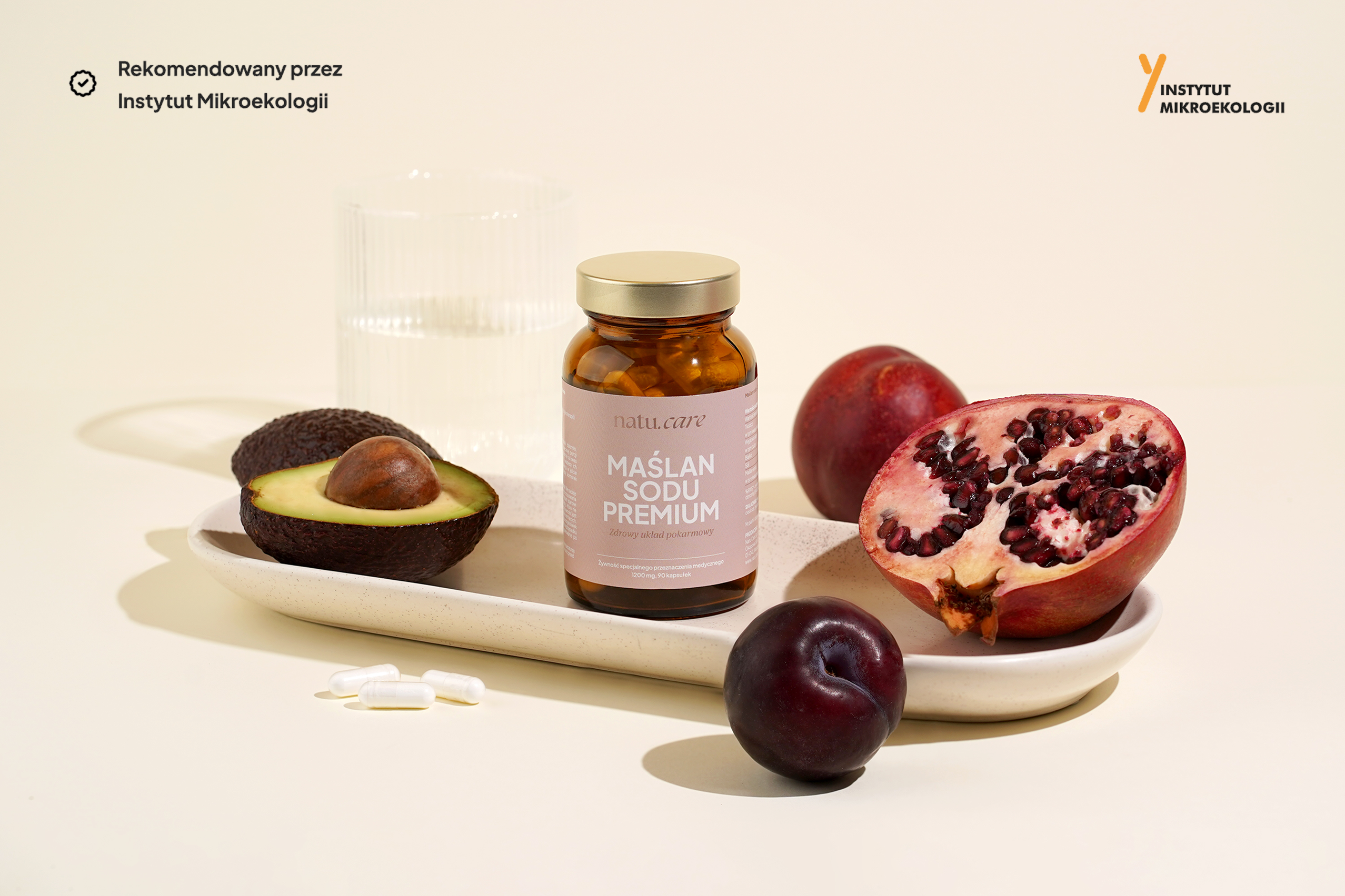
Odkryj korzyści, jakie niesie ze sobą Maślan Sodu Premium od Natu.Care!
Natu.Care Maślan Sodu Premium
Poznaj Maślan Sodu Premium – najwyższej jakości suplement wspierający zdrowie jelit. Maślan sodu pomaga w regeneracji nabłonka jelitowego, poprawia trawienie i wspiera naturalną równowagę mikroflory.
Sprawdź cenę
W końcu się lepiej czuję! Pożegnałam się ze wzdęciami i zaparciami a do tego poprawił się stan mojej cery bo zdrowe jelita to też zdrowa i piękna skóra. Polecam!@Klaudia F.
See also:
.
- What are probiotics? .
- What are prebiotics? .
- What are synbiotics?
- What are psychobiotics? .
- Which probiotic is best?
- Where are natural probiotics found?
- Good probiotics for irritable bowel
- Probiotics for weight loss
- Best heartburn pills
- Best liver pills
Which probiotic for the gut to choose?
.
Choosing the right probiotic for the gut can be crucial to improving your health and wellbeing. There are a number of factors to consider when choosing a probiotic product. The most important of these are:
- types of bacterial strains, .
- the number of live cultures of the microorganisms, .
- appropriate designation of probiotic bacteria, .
- form of administration, .
Magister of Pharmacy Ilona Krzak adds:
"According to studies, mixtures of strains have a higher efficacy in preventing constipation and combating IBS symptoms compared to single-strain probiotics, as the effects of multi-strain probiotics can be complementary or synergistic.
These are the same as single-strain probiotics.
However, this does not mean that the preparation has to have 10 different strains, because the more, the better. It is about a few different strains (4-5), not half of a microbiology laboratory. On top of that, the type of strain also matters.
In the case of IBS, it is also important whether the formula contains FODMAPs, i.e. fermentable oligosaccharides, disaccharides, monosaccharides and polyols (usually referred to as prebiotics), which can exacerbate the discomfort of IBS."
Types of bacterial strains
.
The different strains of probiotic bacteria have different benefits for gut health. The most important of these are Lactobacillus, Bifidobacterium and Saccharomyces yeast.
Lactobacillus acidophilus is one of the most common probiotic bacteria species that helps digest lactose and can alleviate symptoms of lactose intolerance. It may also help prevent and treat diarrhoeaand.
Compared to many other probiotics L. acidophilus it has better resistance to both acids and bile salts. These characteristics facilitate the survival and proliferation of L. acidophilus in the harsh environment of the gastrointestinal tract.
 .
.
Ilona Krzak Master of Pharmacy
.
- acidophilus has multiple effects on the human body, including nutritional effects, regulating the balance of intestinal flora, strengthening immunity, delaying ageing and anti-cancer, and supporting cholesterol reduction.
- acidophilus is divided into many types of strains, including L. acidophilus LA-1, LA-5, NCFM and ATCC4356, DDS-1 - adds pharmacist.
.
Bifidobacterium longum is known to help maintain healthy intestinal flora and may alleviate symptoms of irritable bowel syndromeand.
Supplementation of both L. paracasei and B. longum improves quality of life in terms of emotional well-being and social functioning. L. paracasei and B. longum may reduce the severity of gastrointestinal symptoms and improve the psychological well-being of people with certain subtypes of IBS..
 .
.
Ilona Krzak Master of Pharmacy
Saccharomyces boulardii is a probiotic yeast that is particularly effective in preventing and treating antibiotic-related diarrheaand.
Saccharomyces boulardii effectively supplements the treatment of acute gastrointestinal diseases such as diarrhoea or chronic conditions such as inflammatory bowel disease (IBD)..
 .
.
Ilona Krzak Master of Pharmacy
"So far, this is the only yeast used as a probiotic, and its properties are supported by scientific evidence from the strain S. boulardii CNCM I-745 (or S. boulardii Hansen CBS 5926). Nevertheless, the efficacy of these strains cannot be translated to others, such as S. boulardii CNCM 1079" - explains magister of pharmacy.
Pharmacist Ilona Krzak lists a few more beneficial bacterial species for the intestinal flora:
.
"Lactobacillus plantarum is a well-studied strain. L. plantarum 299v benefits IBS patients, mainly by normalising stools and relieving abdominal pain, which significantly improves the quality of life of IBS patients. In addition, consumption of L. plantarum 299v prevents diarrhoea in patients treated with antibiotics. It also improves iron absorption.
.
It has a high tolerance to both low pH in the stomach and high pH resulting from bile salts in the duodenum. It can also inhibit the growth of potentially pathogenic bacteria.
Bacteria.
Bifidobacterium breve BR03 reduces the proliferation of bacteria E.coli and has positive results in preventing colic in children. Preliminary studies show that this strain can reduce allergic response."
Other probiotic species recommended for the gut:
.
- Lactobacillus gasseri .
- Lactobacillus coryniformis .
- Lactobacillus casei
- Lactobacillus rhamnosus
- Lactobacillus reuteri
- Enterococcus faecalis .
Number of viable microbial cultures
.
Another factor to look at is the number of live bacteria in a probiotic, usually expressed in colony-forming units (CFU - colony-forming unit). Most effective probiotics should contain at least one billion CFUs per doseand.
Probiotics in food must contain at least 10⁶ CFU/g of live and active microorganisms, while freeze-dried supplements show good results when consuming 10 ⁷ to 10 ¹¹ live microorganisms per day..
 .
.
Ilona Krzak Master of Pharmacy
.
Probiotic bacteria designation
.
Before you decide on a particular preparation, look at its composition. Probiotic bacteria should be labelled with a three-member name and include the species (e.g. Bifidobacterium), genus (e.g. lactis) and usually a numerical-letter indication of the specific strain (e.g. BS01).
The last part of the designation is particularly important, due to the fact that the particular properties of probiotics may vary slightly depending on the specific strainand.
.
Probiotics can be used alone or combined with each other, although it should be noted that not all combinations are sustainable and different strains of the same probiotic bacterium may have different abilities or enzymatic activity, even if they belong to the same species. Probiotic properties vary considerably between species, strains and even between strain variants..
 .
.
Ilona Krzak Master of Pharmacy
.
Form of application
.
The effectiveness of a probiotic also depends on how many beneficial bacteria are able to reach and colonise the gut. For this to happen, as many of them as possible must survive the journey through the digestive system. Probiotics are best protected by capsules in coated shells, which protect the valuable microorganisms from the acidic environment of the stomach.
While some probiotics can become part of the microbiome, others simply pass through the gastrointestinal tract and modulate the existing microbiome or affect it before leaving the body..
 .
.
Ilona Krzak Master of Pharmacy
.
Probiotic drug or supplement - which to choose?
.
The basic difference between a drug and a dietary supplement is that the former is used to treat a particular ailment, while the latter is a supplement to our diet. Probiotic in the form of a drug must contain a certain number of bacterial or yeast cultures and have a research-proven effect. On top of this, it is subject to quality control even after release. In the case of a food supplement, there are no such requirements.
.
Most probiotic preparations available on the market are dietary supplements. Therefore, it is worth reading the product description carefully, checking the designation of the bacterial strains and seeing if the manufacturer can boast studies on the purity of the formulation or efficacy. The best dietary supplement manufacturers also offer quality products that can effectively support your health.
Probiotics necessarily in the fridge?
.Many people reflexively put probiotics in the fridge. However, this practice is not always recommended. Some preparations are formulated so that the bacteria do best at room temperature, i.e. between 15-25°C. Before storing the preparation in the fridge, check the manufacturer's storage recommendations. These can be found on the packaging or in the leaflet.
Best probiotic and other products for the gut - ranking
.
Probiotic for the gut for adults:
- ALLDEYNN ROSEBIOTIC .
- Dr.Jacob's Iodine + Selenium probio .
- Panaseus Formula for the gut .
- Sanprobi IBS .
- Asecurin IB .
Gut starch for children and babies:
- Multilac Baby Synbiotic .
- Polpharma Acidolac .
- APTEO probiotic in drops .
- Vivomixx Microcapsules .
- Joy Day Probiotics Forest Fruits .
Premium Sodium Butyrate
Product description
Premium Sodium Butyrate is a natural support for your digestive system. With a high dose of butyric acid (940 mg), it supports the regeneration of the intestinal mucosa, improving gut health and function, and aids in the absorption of nutrients. By taking care of your intestines, you're taking care of the health of your entire body.
Studies involving people suffering from irritable bowel syndrome confirm that sodium butyrate is ideal for supporting issues related to bacterial flora imbalances (for example, after antibiotic therapy), constipation and diarrhea, inflammation of the intestinal mucosa, or a diet low in fiber.
Premium Sodium Butyrate capsules are made using the innovative DRcaps® technology. This guarantees that the active ingredients in the product are protected from the destructive effects of stomach acids and digestive enzymes. As a result, we can be sure that the beneficial ingredients are released in the small intestine and are fully absorbed by our body.
Premium Sodium Butyrate from Natu Care is 100% tested, and its composition contains only the highest quality raw materials.
Pros and cons
Pros:
- Supports digestive system function
- Helpful for various gastrointestinal conditions, including IBS
- High dose of butyric acid in each capsule
- Eco-friendly, clean, and tested composition
- Free from added sugar, gluten, GMOs, and lactose
- Innovative capsule technology - DRcaps
Cons:
- None
Additional Information
Take 3 capsules daily at any time of the day, preferably with a meal. Swallow the capsules whole with water.
Premium Sodium Butyrate is intended for adults.
The product should be used under medical supervision.
User review
I've been using the product for 2 weeks. My stomach feels lighter, and my digestion has improved. I recommend it.
Sundose° Daily Lightness°
Product description
Sundose° Daily Lightness° is a formula thatós supports the stomach and liver, reduces the frequency of gasóing and bloating, and supports optimal digestion. The formula contains no unnecessary additivesós, and the composition of the active ingredients (e.g. curcumin with piperine) mutually enhances their absorption.
The dietary supplement from Sundose comes in two flavour versions: orange and green.
Pros and cons
Sundose° Daily Lightness° is a formula thatós supports the stomach and liver, reduces the frequency of gasóing and bloating, and supports optimal digestion. The formula contains no unnecessary additivesós, and the composition of the active ingredients (e.g. curcumin with piperine) mutually enhances their absorption.
The dietary supplement from Sundose comes in two flavour versions: orange and green.
Additional information
Sundose° Daily Lightness° is a formula thatós supports the stomach and liver, reduces the frequency of gasóing and bloating, and supports optimal digestion. The formula contains no unnecessary additivesós, and the composition of the active ingredients (e.g. curcumin with piperine) mutually enhances their absorption.
The dietary supplement from Sundose comes in two flavour versions: orange and green.
Sundose° Daily Lightness° is a formula thatós supports the stomach and liver, reduces the frequency of gasóing and bloating, and supports optimal digestion. The formula contains no unnecessary additivesós, and the composition of the active ingredients (e.g. curcumin with piperine) mutually enhances their absorption.
The dietary supplement from Sundose comes in two flavour versions: orange and green.
Asecurin IB
Product description
Asecurin IB is a synbiotic, i.e. a combination of a probiotic and a prebiotic. It contains bacteria and yeast to support the intestines and digestive system, as well as inulin, whichós food for these microorganisms. The addition of a prebiotic supports and accelerates the growth of beneficial bacterial flora in the intestines.
Pros and cons
Asecurin IB is a synbiotic, i.e. a combination of a probiotic and a prebiotic. It contains bacteria and yeast to support the intestines and digestive system, as well as inulin, whichós food for these microorganisms. The addition of a prebiotic supports and accelerates the growth of beneficial bacterial flora in the intestines.
Additional information
Asecurin IB is a synbiotic, i.e. a combination of a probiotic and a prebiotic. It contains bacteria and yeast to support the intestines and digestive system, as well as inulin, whichós food for these microorganisms. The addition of a prebiotic supports and accelerates the growth of beneficial bacterial flora in the intestines.
Biocodex Enterol
Product description
Enterol is an OTC medicine containing a strain of yeastów particularlyóhelpful in the treatment of diarrhoea caused by infections or so-called travel diarrhoea. It is also recommended as a protective treatment of the intestines during antibiotic intake.
.
Pros and cons
Enterol is an OTC medicine containing a strain of yeastów particularlyóhelpful in the treatment of diarrhoea caused by infections or so-called travel diarrhoea. It is also recommended as a protective treatment of the intestines during antibiotic intake.
.
Additional information
Enterol is an OTC medicine containing a strain of yeastów particularlyóhelpful in the treatment of diarrhoea caused by infections or so-called travel diarrhoea. It is also recommended as a protective treatment of the intestines during antibiotic intake.
.
Enterol is an OTC medicine containing a strain of yeastów particularlyóhelpful in the treatment of diarrhoea caused by infections or so-called travel diarrhoea. It is also recommended as a protective treatment of the intestines during antibiotic intake.
.
Product description
Using Panaseus Digestive Formula can help improve intestinal health by supporting the intestinal barrier, reducing inflammation, protecting against damage and restoring healthy intestinal microflora.
Experience a rós difference in gut function with plant extracts, amino acids and probiotic bacteria.
Pros and cons
Using Panaseus Digestive Formula can help improve intestinal health by supporting the intestinal barrier, reducing inflammation, protecting against damage and restoring healthy intestinal microflora.
Experience a rós difference in gut function with plant extracts, amino acids and probiotic bacteria.
Additional information
Using Panaseus Digestive Formula can help improve intestinal health by supporting the intestinal barrier, reducing inflammation, protecting against damage and restoring healthy intestinal microflora.
Experience a rós difference in gut function with plant extracts, amino acids and probiotic bacteria.
What does a probiotic do for the gut?
.
Probiotics are crucial to the health of your digestive system, acting in two main ways. On the one hand, they actively participate in the process of breaking down food into intermediates, making it easier for your digestive system. As a result, the nutrients in the foods you eat are better absorbed by your bodyand.
Probiotics help the host digest and absorb valuable substances from food, metabolise toxic metabolic products, and produce amino acids and short-chain fatty acids necessary for normal human activity..
 .
.
Ilona Krzak Master of Pharmacy
On the other hand, probiotics are extremely effective against pathogens. They work by competing with them for access to food and by producing substances (so-called postbiotics) that show the ability to destroy certain germs. An example of this is rotaviruses, which are often responsible for diarrhoea. Probiotics, thanks to their properties, can effectively fight themand.
Probiotics also prevent pathogens from adhering to the intestinal walls and producing enterotoxins..
 .
.
Ilona Krzak Master of Pharmacy
.
Probiotic for irritable bowel
.
Irritable bowel syndrome ( Irritable Bowel Syndrome - IBS) is an ailment that can cause many unpleasant symptoms such as abdominal pain, bloating, constipation or diarrhoea. Probiotics can play a positive role in helping to treat this condition by improving the balance of the gut microflora.
Scientific research suggests that probiotics can help treat IBS in several ways. Firstly, they improve the balance of bacteria in the gut. Many people with irritable bowel syndrome have an impaired microflora, which is referred to as dysbiosis. Probiotics can help reset this microflora by promoting the growth of beneficial bacteria and inhibiting the growth of harmful onesand.
Secondly, probiotics can help reduce inflammation in the gut, which is often present in people with IBS. Certain types of bacteria, such as Lactobacillus reuteri have shown the ability to reduce inflammationand.
Responsive strains of probiotic bacteria modulate the permeability of the intestinal mucosa, thereby influencing the body's generalised inflammation..
 .
.
Ilona Krzak Master of Pharmacy
Thirdly, probiotics can help regulate bowel movements. Many people with IBS suffer from alternating constipation and diarrhoea. Some studies suggest that probiotics may help regulate intestinal peristalsis, providing relief from both constipation and diarrhoeaand.
Remember, however, that the effectiveness of probiotics can depend on a number of factors, such as the strain of bacteria, dose and duration of supplementation. Always consult with your doctor or pharmacist before starting probiotic supplements to ensure they are suitable for your condition.
Probiotics are a good choice for you.
Probiotics for colonic diverticulosis
.
Diverticulosis of the large intestine, also known as diverticular disease, is a condition that can cause a range of unpleasant symptoms such as abdominal pain, constipation or diarrhoea.
Research on this topic is quite limited, but some studies suggest that probiotics may help manage diverticular disease by reducing unpleasant symptoms such as abdominal pain and bloatingand.
.
In the 2019 study, participants were divided into two groups. The control group was given the standard antibiotic used to treat diverticular disease. The rest of the participants supplemented with the antibiotic in combination with three strains of probiotic bacteria: Bifidobacterium lactis LA304, Lactobacillus salivarius LA302 and Lactobacillus acidophilus LA201.
.
Results suggest that abdominal pain and inflammation in the body were reduced to a greater extent in those taking the probiotic preparation than in the group that only took the antibioticand.
.
The same research team also tested the effect of the strain Lactobacillus reuteri ATCCPTA4659 on patients with acute uncomplicated diverticulitis. The results were similar, with patients experiencing significant pain relief and inflammation rates decreasing. It was also associated with a shorter period of hospitalisationand.
It is important to remember that probiotics are not a cure for diverticular disease. They cannot prevent the formation of diverticula or repair existing ones. They are only a supportive adjunct to treatment that can help manage symptoms.
Probiotics are not a cure for diverticulosis.
Probiotic for lazy bowel
.
Plazy bowel, or more correctly lazy bowel syndrome, is a condition in which intestinal peristalsis is slowed down. This can lead to problems with bowel movement regularity, causing constipation and discomfort.
Probiotics can help to balance the gut microflora. A healthy gut flora is crucial for proper digestion and bowel movements. By populating the gut with healthy bacteria, they can help restore homeostasisand.
Some probiotics can also stimulate intestinal peristalsis, which can help regulate bowel movements. This is particularly beneficial for people with lazy bowels, who tend to have problems with constipation. Improved peristalsis causes faecal masses to move smoothly through the intestines and facilitates bowel movementand.
Fibre and constipation
.It is often said that for lazy bowels or constipation you need to consume a lot of fibre. This is true, but the problem is that an excess of it can also lead to constipation. To guard against this paradox, eat around 20-40g of fibre a dayand and drink plenty of water.
Probiotic for leaky gut
.
Leaky gut syndrome is a condition in which the intestinal mucosa becomes excessively permeable, allowing not only nutrients but also harmful substances: toxins, bacteria and other pathogens to enter the bloodstream. This can lead to a number of health problems, such as disease liver disease, digestive problems and chronic inflammationand.
Probiotics help to balance the intestinal microflora. In leaky gut syndrome, this balance is often disrupted, leading to a dominance of harmful bacteria. Probiotics help to restore the homeostasis of the microbiota, by populating the gut with beneficial bacteria and inhibiting the spread of harmful onesand.
Additionally, probiotics can also help repair damaged intestinal mucosa. Some probiotic strains are able to produce special substances that accelerate the regeneration of intestinal epithelial cells, which helps to restore the normal intestinal barrierand.
Probiotics can also help restore the intestinal barrier.
Probiotics can also help reduce the inflammation that often accompanies leaky gut syndrome. They work by modulating the immune response, which helps to reduce the inflammatory responseand.
A 2014 study and a 2022 study review showed that strains Bifidobacterium lactis LA303 and LA304, Lactobacillus acidophilus LA201 and DDS-1, Lactobacillus plantarum LA301 299v, Lactobacillus salivarius LA302 and Lactobacillus rhamnosus GG may support the regeneration of damaged intestinal epithelium, as well as preventing further degradationand.
Important
Although probiotics can help with leaky gut syndrome, they are not a substitute for professional medical help. Always consult your doctor before starting supplements, especially if you are suffering from any health problems.
Probiotic for ulcerative colitis
.
Ulcerative colitis ( Ulcerative Colitis, UC) is a chronic disease that causes inflammation and ulcers in the colon. Can probiotics help? The answer to this question is not clear, but research suggests that they may play a positive role in this ailment.
In the context of ulcerative colitis, probiotics may work in several ways. First and foremost, they may help to rebalance the bacterial flora in the gut, which is often disrupted in people with UC. Some studies suggest that probiotics may also reduce inflammation, which may provide relief from symptomsand.
Some studies have shown that probiotic bacteria from the species Escherichia coli and Streptococcus thermophilus may be as effective as traditional medications in maintaining remission in people with ulcerative colitisand.
.
Despite this promising evidence, remember that probiotics are not wonder pills. They can be helpful as an adjunct to standard therapy, but will not replace the need for drug treatment or lifestyle changes. It is always a good idea to consult your doctor or nutritionist before starting probiotics, especially if you suffer from ulcerative colitis.
Natural probiotics for the gut
.
Probiotics can be found in many different foods. Below are the types of foods you can eat to provide yourself with probiotics for the gut.
Natural probiotics for the gut.
Natural yoghurt - is one of the best known sources of probiotics. It contains bacteria such as Lactobacillus and Bifidobacterium, which are beneficial to our digestive system. When wanting to provide yourself with good bacteria, especially choose probiotic yoghurts that have a specific strain.
Kefir -is a fermented milk drink that not only provides probiotics, but is also an excellent source of protein and calcium.
Sauerkrauts - such as sauerkraut and cucumbers are a rich source of probiotics. The fermentation process they undergo creates natural probiotics in them.
Miso - is a Japanese soybean paste that is fermented and contains probiotics. It can be added to soups and sauces.
Tempeh - is a product from Indonesia that is made from fermented soybeans. It is a rich source of protein and probiotics.
Sourdough bread - its production process uses natural bacteria and yeast, which are beneficial to our digestive system.
Foods rich in probiotics are a great addition to diet, but it is important to remember that the bacteria in them will not assimilate as effectively as those in medicines and supplements. Why? Because they are not protected in any way from the digestive processes.
Additionally, you are also unable to determine exactly what types and strains of bacteria you are eating. So, if you are looking for a specific probiotic for a particular ailment, choosing a ready-made preparation may be a better idea.
Probiotics - contraindications
.
Probiotics are usually safe for most people, but there are some situations where taking them may not be recommended. Remember that you should always consult your doctor before starting any supplementation - including probiotic therapy.
If you have a weakened immune system, for example due to chemotherapy, HIV/AIDS, taking immunosuppressants or following surgery, taking probiotics may be risky.
Another contraindication to taking probiotics is severe intestinal diseases (e.g. Crohn's disease). With severe intestinal diseases, some strains may help, but others will actually harm you. Therefore, if you suffer from such ailments, consultation with a specialist will be a must.
If you are allergic, you should also exercise caution. Some probiotics may contain ingredients you may be allergic to or have an intolerance to, such as soya, lactose or fructose.
See also the following.
See also:
How to use probiotics?
.
Preferably - as recommended by the manufacturer of a particular preparation or your doctor. Most probiotics should be taken about 1-2 hours before a meal, which increases the survival of the bacteria in the digestive tract. There is less acid in an empty stomach, which can kill probiotics.
For the same reason, probiotics should not be sipped with hot beverages or consumed shortly after taking them. You don't supplement good strains of bacteria to inadvertently boil them.
It is also worth adding that regularity is important. Regeneration of the microbiome after antibiotic therapy can take up to several weeks..
 .
.
Ilona Krzak Master of Pharmacy
.
See also:
.
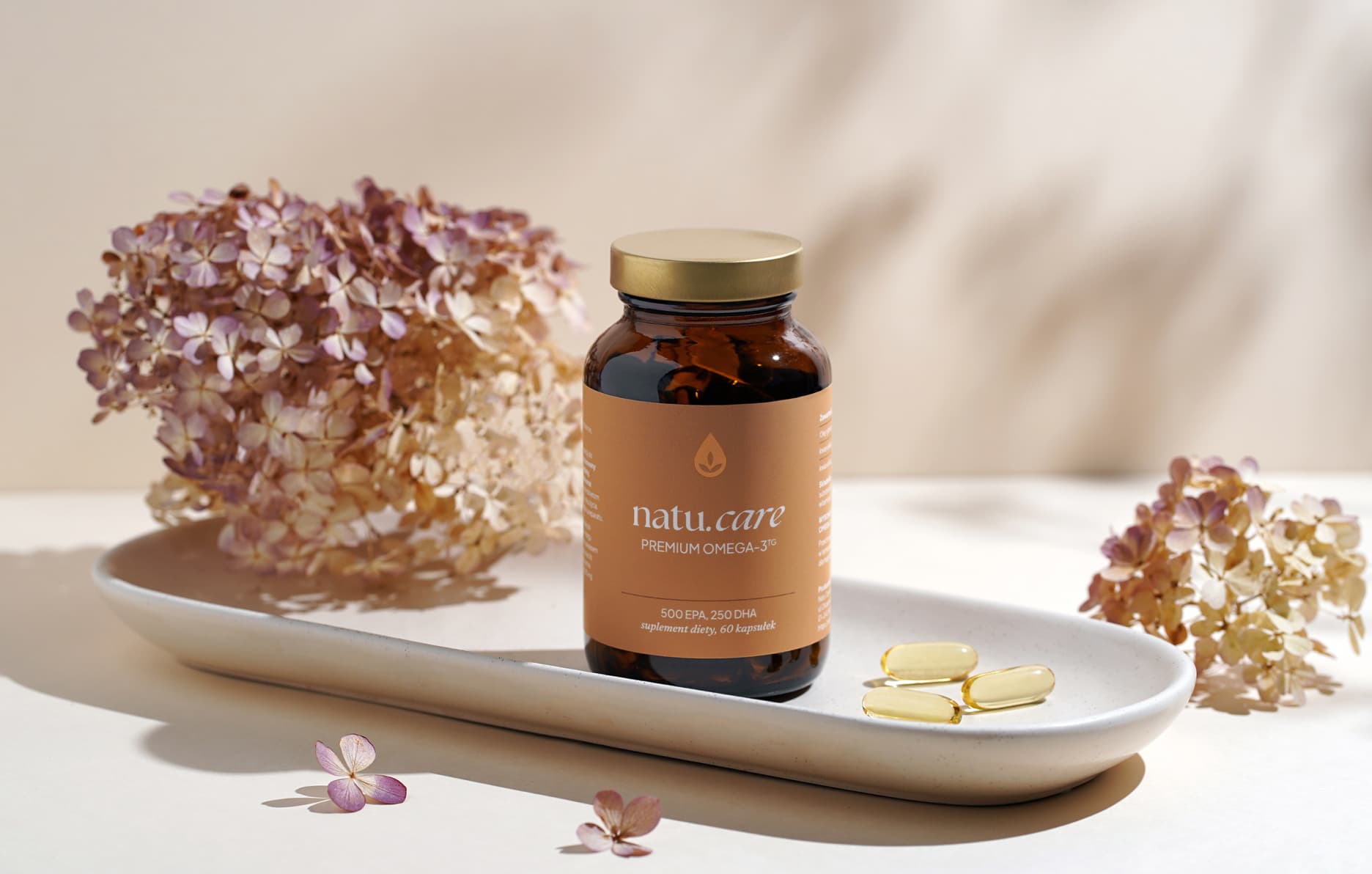
Sprawdź, za co pokochały go tysiące klientek Natu.Care Premium Omega-3ᵀᴳ -15% z kodem BLOG15
Natu.Care Omega-3ᵀᴳ Premium
Natu.Care Omega-3ᵀᴳ Premium dla zdrowia serca, mózgu i odporności. Najlepsza przyswajalność. Optymalna dawka 750 mg. Przebadana przez niezależne laboratorium.
Zobacz więcej
Produkt ma super skład, transparentną etykietę i co dla mnie jest ważne – małe kapsułki do połknięcia. Nie ma też nieprzyjemnego efektu odbijania rybą, który miałam spożywając inne produkty. Widzę znaczną poprawę odporności. Polecam!@Kasia P.
Summary
.
- The best probiotics for the gut contain bacteria from the Lactobacillus, Bifidobacterium, and Saccharomyces yeast species in appropriate amounts.
- Probiotics should be properly labelled (the name should be in three parts) and be in a form that allows them to survive in the digestive system.
- Probiotics can reduce the proliferation of pathogenic microorganisms, improve intestinal peristalsis, and even reduce inflammation.
- You can supplement beneficial bacteria by eating dairy products and various types of pickles. .
- Most probiotic preparations should be taken on an empty stomach and sipped with lukewarm drinks.
- Recommended probiotics include, for example, Alldeyn Rosebiotic and Dr. Jacob's Iodine + Selenium probio. .
FAQ
.Will a probiotic help the gut?
.Yes, probiotics can help with gut problems. When these bacteria are consumed in the right amounts, they provide health benefits. They work by improving the balance of the gut microflora.
Take probiotics that contain species such as Lactobacillus and Bifidobacterium. For example, Bifidobacterium longum can help relieve constipation, abdominal pain and bloating.
Remember to consume probiotics along with fibre, as fibre acts as a prebiotic that helps beneficial bacteria to multiply. Good sources of fibre include fruit, vegetables and whole grains.
What are the symptoms of bacteria in the gut?
.Symptoms of pathogenic bacteria in the gut can vary, but often include excessive gas, abdominal pain, altered bowel frequency, diarrhoea or constipation and even weight loss. Observe your body, look out for changes in digestion, pain or discomfort.
Go to your doctor if you notice any worrying symptoms. A specialist may order stool tests to help identify the presence of pathogenic bacteria.
Take a stool test.
How long to take a probiotic for the gut
.Take probiotic for the gut for at least 2-4 weeks. The length of treatment depends on the condition of your digestive system. For example, if you are on antibiotics, use the probiotic for the entire treatment period and for another 2-3 weeks afterwards. In the case of intestinal disorders, such as irritable bowel syndrome, the treatment can last up to several months, but such long probiotic use should be prescribed by your doctor.
Do probiotics cleanse the gut?
.In a sense, yes. Probiotic bacteria will not remove toxins or deposits lodged in the gut, so they will not cleanse the gut in the literal sense of the word. However, they may contribute to reducing the number of pathogenic microorganisms that inhabit the digestive system.
The metabolic products (postbiotics) of probiotic bacteria can kill certain pathogens. A sufficient amount of beneficial probiotics will also compete with them for food and space in the gut, making it harder for them to multiply.
How to get rid of bad bacteria in the gut
.If you are suffering from intestinal complaints and suspect you have a bacterial infection - see your doctor. A specialist will be able to order the appropriate tests and implement effective treatment.
To get rid of bad gut bacteria, you can also look at your diet. Increase your fibre intake. Eat more vegetables, fruit and whole grains. Fibre helps eliminate pathogenic microbes by promoting healthy gut peristalsis and feeding beneficial probiotic bacteria.
Drink plenty of water - it keeps the body properly hydrated and aids digestion. Avoid processed and fatty foods as they can increase the number of harmful bacteria. Eat foods rich in probiotics: yoghurt, kefir, pickles.
.What to eat to rebuild the intestinal bacterial flora?
.To rebuild your gut flora, eat fermented foods such as pickles, natural yoghurt and kefir. They are rich in probiotics, which improve the diversity of the gut microflora.
Consume fibre. Fibre-rich foods such as fruit, vegetables, nuts, seeds and whole-grain cereal products promote the growth of beneficial gut bacteria. Avoid excessive consumption of processed foods and sugars. These can harm your gut microflora. Drink plenty of water, which helps your digestive system function properly.
You may also want to consider supplementation with prebiotics and probiotics. These can help to rebuild your gut flora and improve digestive comfort.
Does an excess of probiotics harm you?
.Yes, excess probiotics can harm you. Even beneficial bacteria taken in too large quantities can multiply excessively and lead to SIBO syndrome. This is a bacterial proliferation syndrome in the small intestine. It can cause bloating, gas, diarrhoea and abdominal pain.
To avoid the dangers of excess bacteria in the body, always follow the manufacturer's recommendations or your doctor's instructions regarding the daily portions of probiotic preparations and the length of time you can take them.
.
Sources
.See all
.Álvarez-Arraño, V., & Martín-Peláez, S. (2021). Effects of Probiotics and Synbiotics on Weight Loss in Subjects with Overweight or Obesity: A Systematic Review. Nutrients, 13(10), Article 10. https://doi.org/10.3390/nu13103627
Amara, A. A., & Shibl, A. (2015). Role of Probiotics in health improvement, infection control and disease treatment and management. Saudi Pharmaceutical Journal, 23(2), 107-114. https://doi.org/10.1016/j.jsps.2013.07.001
Batatinha, H., Tavares-Silva, E., Leite, G. S. F., Resende, A. S., Albuquerque, J. A. T., Arslanian, C., Fock, R. A., Lancha, A. H., Lira, F. S., Krüger, K., Thomatieli-Santos, R., & Rosa-Neto, J. C. (2020). Probiotic supplementation in marathoners and its impact on lymphocyte population and function after a marathon: A randomized placebo-controlled double-blind study. Scientific Reports, 10(1), Article 1. https://doi.org/10.1038/s41598-020-75464-0
Cheng, J., & Ouwehand, A. C. (2020). Gastroesophageal Reflux Disease and Probiotics: A Systematic Review. Nutrients, 12(1), Article 1. https://doi.org/10.3390/nu12010132
Chilicka, K., Dzieńdziora-Urbińska, I., Szyguła, R., Asanova, B., & Nowicka, D. (2022). Microbiome and Probiotics in Acne Vulgaris-A Narrative Review. Life, 12(3), Article 3. https://doi.org/10.3390/life12030422
Das, T. K., Pradhan, S., Chakrabarti, S., Mondal, K. C., & Ghosh, K. (2022). Current status of probiotic and related health benefits. Applied Food Research, 2(2), 100185. https://doi.org/10.1016/j.afres.2022.100185
Fatahi, S., Hosseini, A., Sohouli, M. H., Sayyari, A., Khatami, K., Farsani, Z. F., Amiri, H., Dara, N., de Souza, I. G. O., & Santos, H. O. (2022). Effects of probiotic supplementation on abdominal pain severity in pediatric patients with irritable bowel syndrome: A systematic review and meta-analysis of randomized clinical trials. World Journal of Pediatrics, 18(5), 320-332. https://doi.org/10.1007/s12519-022-00516-6
Kechagia, M., Basoulis, D., Konstantopoulou, S., Dimitriadi, D., Gyftopoulou, K., Skarmoutsou, N., & Fakiri, E. M. (2013). Health Benefits of Probiotics: A Review. International Scholarly Research Notices, 2013, e481651. https://doi.org/10.5402/2013/481651
Kober, M.-M., & Bowe, W. P. (2015). The effect of probiotics on immune regulation, acne, and photoaging. International Journal of Women's Dermatology, 1(2), 85-89. https://doi.org/10.1016/j.ijwd.2015.02.001
Liu, W., Xie, Y., Li, Y., Zheng, L., Xiao, Q., Zhou, X., Li, Q., Yang, N., Zuo, K., Xu, T., Lu, N.-H., & Zhang, H. (2022). Protocol of a randomized, double-blind, placebo-controlled study of the effect of probiotics on the gut microbiome of patients with gastro-oesophageal reflux disease treated with rabeprazole. BMC Gastroenterology, 22(1), 255. https://doi.org/10.1186/s12876-022-02320-y
Markowska-Jędra, A. (2020, December 8). Gut-brain axis. NeuroExpert. https://neuroexpert.org/wiki/os-jelita-mozg/
Martín-Peláez, S., Cano-Ibáñez, N., Pinto-Gallardo, M., & Amezcua-Prieto, C. (2022). The Impact of Probiotics, Prebiotics, and Synbiotics during Pregnancy or Lactation on the Intestinal Microbiota of Children Born by Cesarean Section: A Systematic Review. Nutrients, 14(2), Article 2. https://doi.org/10.3390/nu14020341
Nikolova, V. L., Cleare, A. J., Young, A. H., & Stone, J. M. (2023). Acceptability, Tolerability, and Estimates of Putative Treatment Effects of Probiotics as Adjunctive Treatment in Patients With Depression: A Randomized Clinical Trial. JAMA Psychiatry, 80(8), 842-847. https://doi.org/10.1001/jamapsychiatry.2023.1817
Office of Dietary Supplements-Probiotics. (n.d.). Retrieved 11 August 2023, from https://ods.od.nih.gov/factsheets/Probiotics-HealthProfessional/
Ou, Q., Wang, L., Wang, K., & Shao, P. (2021). Effect of probiotics supplementation combined with WeChat platform health management on nutritional status, inflammatory factors, and quality of life in patients with mild-to-moderate ulcerative colitis: A randomized trial. Annals of Palliative Medicine, 10(6), Article 6. https://doi.org/10.21037/apm-21-1056
Reid, G., Gadir, A. A., & Dhir, R. (2019). Probiotics: Reiterating What They Are and What They Are Not. Frontiers in Microbiology, 10. https://www.frontiersin.org/articles/10.3389/fmicb.2019.00424
Sabaté, J.-M., & Iglicki, F. (2022). Effect of Bifidobacterium longum 35624 on disease severity and quality of life in patients with irritable bowel syndrome. World Journal of Gastroenterology, 28(7), 732-744. https://doi.org/10.3748/wjg.v28.i7.732
Sun, H., Li, X., Chen, W., Jia, F., Su, J., Zhang, B., Wu, X., & Wu, P. (2021). Effect of probiotics and dietary fiber combined with pinaverium bromide on intestinal flora in patients with irritable bowel syndrome. American Journal of Translational Research, 13(12), 14039-14045.
Tavakoly, R., Hadi, A., Rafie, N., Talaei, B., Marx, W., & Arab, A. (2021). Effect of Probiotic Consumption on Immune Response in Athletes: A Meta-analysis. International Journal of Sports Medicine, 42(09), 769-781. https://doi.org/10.1055/a-1463-3303
Wallace, C. J. K., & Milev, R. (2017). The effects of probiotics on depressive symptoms in humans: A systematic review. Annals of General Psychiatry, 16(1), 14. https://doi.org/10.1186/s12991-017-0138-2
Wang, Y., Jiang, Y., Deng, Y., Yi, C., Wang, Y., Ding, M., Liu, J., Jin, X., Shen, L., He, Y., Wu, X., Chen, X., Sun, C., Zheng, M., Zhang, R., Ye, H., An, H., & Wong, A. (2020). Probiotic Supplements: Hope or Hype? Frontiers in Microbiology, 11. https://www.frontiersin.org/articles/10.3389/fmicb.2020.00160
.Wicinski, M., Gębalski, J., Gołębiewski, J., & Malinowski, B. (2020). Probiotics for the Treatment of Overweight and Obesity in Humans-A Review of Clinical Trials. Microorganisms, 8(8), Article 8. https://doi.org/10.3390/microorganisms8081148
Yadav, M. K., Kumari, I., Singh, B., Sharma, K. K., & Tiwari, S. K. (2022). Probiotics, prebiotics and synbiotics: Safe options for next-generation therapeutics. Applied Microbiology and Biotechnology, 106(2), 505-521. https://doi.org/10.1007/s00253-021-11646-8
Zhang, C., Li, L., Jin, B., Xu, X., Zuo, X., Li, Y., & Li, Z. (2021). The Effects of Delivery Mode on the Gut Microbiota and Health: State of Art. Frontiers in Microbiology, 12. https://www.frontiersin.org/articles/10.3389/fmicb.2021.724449
Zhang, Z., Lv, J., Pan, L., & Zhang, Y. (2018). Roles and applications of probiotic Lactobacillus strains. Applied Microbiology and Biotechnology, 102(19), 8135-8143. https://doi.org/10.1007/s00253-018-9217-9
Ait Abdellah, S., Gal, C., Laterza, L., Velenza, V., Settanni, C. R., Napoli, M., Schiavoni, E., Mora, V., Petito, V., & Gasbarrini, A. (2023). Effect of a Multistrain Probiotic on Leaky Gut in Patients with Diarrhea-Predominant Irritable Bowel Syndrome: A Pilot Study. Digestive Diseases, 41(3), 489-499. https://doi.org/10.1159/000526712
Aleman, R. S., Moncada, M., & Aryana, K. J. (2023). Leaky Gut and the Ingredients That Help Treat It: A Review. Molecules, 28(2), Article 2. https://doi.org/10.3390/molecules28020619
Azad, M. A. K., Sarker, M., Li, T., & Yin, J. (2018). Probiotic Species in the Modulation of Gut Microbiota: An Overview. BioMed Research International, 2018, e9478630. https://doi.org/10.1155/2018/9478630
Bubnov, R. V., Babenko, L. P., Lazarenko, L. M., Mokrozub, V. V., & Spivak, M. Ya. (2018). Specific properties of probiotic strains: Relevance and benefits for the host. EPMA Journal, 9(2), 205-223. https://doi.org/10.1007/s13167-018-0132-z
Dale, H. F., Rasmussen, S. H., Asiller, Ö. Ö., & Lied, G. A. (2019). Probiotics in Irritable Bowel Syndrome: An Up-to-Date Systematic Review. Nutrients, 11(9), Article 9. https://doi.org/10.3390/nu11092048
Fedorak, R. N. (2010). Probiotics in the Management of Ulcerative Colitis. Gastroenterology & Hepatology, 6(11), 688-690.
Fontana, L., Bermudez-Brito, M., Plaza-Diaz, J., Muñoz-Quezada, S., & Gil, A. (2013). Sources, isolation, characterisation and evaluation of probiotics. British Journal of Nutrition, 109(S2), S35-S50. https://doi.org/10.1017/S0007114512004011
He, Y., Zhu, L., Chen, J., Tang, X., Pan, M., Yuan, W., & Wang, H. (2022). Efficacy of Probiotic Compounds in Relieving Constipation and Their Colonization in Gut Microbiota. Molecules, 27(3), Article 3. https://doi.org/10.3390/molecules27030666
Iheozor-Ejiofor, Z., Kaur, L., Gordon, M., Baines, P. A., Sinopoulou, V., & Akobeng, A. K. (2020). Probiotics for maintenance of remission in ulcerative colitis. Cochrane Database of Systematic Reviews, 3. https://doi.org/10.1002/14651858.CD007443.pub3
Jin, W., Ai, H., Huang, Q., Li, C., He, X., Jin, Z., & Zuo, Y. (2023). Preclinical evidence of probiotics in ulcerative colitis: A systematic review and network meta-analysis. Frontiers in Pharmacology, 14. https://www.frontiersin.org/articles/10.3389/fphar.2023.1187911
Kumar, L. S., Pugalenthi, L. S., Ahmad, M., Reddy, S., Barkhane, Z., Elmadi, J., Kumar, L. S., Pugalenthi, L. S., Ahmad, M., Reddy, S., Barkhane, Z., & Elmadi, J. (2022). Probiotics in Irritable Bowel Syndrome: A Review of Their Therapeutic Role. Cureus, 14(4). https://doi.org/10.7759/cureus.24240
Li, B., Liang, L., Deng, H., Guo, J., Shu, H., & Zhang, L. (2020). Efficacy and Safety of Probiotics in Irritable Bowel Syndrome: A Systematic Review and Meta-Analysis. Frontiers in Pharmacology, 11. https://www.frontiersin.org/articles/10.3389/fphar.2020.00332
Mendonça, A. A., Pinto-Neto, W. de P., da Paixão, G. A., Santos, D. da S., De Morais, M. A., & De Souza, R. B. (2023). Journey of the Probiotic Bacteria: Survival of the Fittest. Microorganisms, 11(1), Article 1. https://doi.org/10.3390/microorganisms11010095
.Né, M., & bot-Vivinus, C. H. (2014). Multispecies probiotic protects gut barrier function in experimental models. World Journal of Gastroenterology, 20(22), 6832-6843. https://doi.org/10.3748/wjg.v20.i22.6832
Petruzziello, C., Marannino, M., Migneco, A., Brigida, M., Saviano, A., Piccioni, A., Franceschi, F., & Ojetti, V. (2019). The efficacy of a mix of three probiotic strains in reducing abdominal pain and inflammatory biomarkers in acute uncomplicated diverticulitis. European review for medical and pharmacological sciences, 23, 9126-9133. https://doi.org/10.26355/eurrev_201910_19316
Petruzziello, C., Migneco, A., Cardone, S., Covino, M., Saviano, A., Franceschi, F., & Ojetti, V. (2019). Supplementation with Lactobacillus reuteri ATCC PTA 4659 in patients affected by acute uncomplicated diverticulitis: A randomized double-blind placebo controlled trial. International Journal of Colorectal Disease, 34(6), 1087-1094. https://doi.org/10.1007/s00384-019-03295-1
Piccioni, A., Franza, L., Brigida, M., Zanza, C., Torelli, E., Petrucci, M., Nicolò, R., Covino, M., Candelli, M., Saviano, A., Ojetti, V., & Franceschi, F. (2021). Gut Microbiota and Acute Diverticulitis: Role of Probiotics in Management of This Delicate Pathophysiological Balance. Journal of Personalized Medicine, 11(4), Article 4. https://doi.org/10.3390/jpm11040298
Piccioni, A., Franza, L., Vaccaro, V., Saviano, A., Zanza, C., Candelli, M., Covino, M., Franceschi, F., & Ojetti, V. (2021). Microbiota and Probiotics: The Role of Limosilactobacillus Reuteri in Diverticulitis. Medicina, 57(8), Article 8. https://doi.org/10.3390/medicina57080802
Protection and Restitution of Gut Barrier by Probiotics: Nutritional and Clinical Implications | Bentham Science. (n.d.). Retrieved 31 October 2023, from https://www.eurekaselect.com/article/50828
Štofilová, J., Kvaková, M., Kamlárová, A., Hijová, E., Bertková, I., & Guľašová, Z. (2022). Probiotic-Based Intervention in the Treatment of Ulcerative Colitis: Conventional and New Approaches. Biomedicines, 10(9), Article 9. https://doi.org/10.3390/biomedicines10092236
Wieërs, G., Belkhir, L., Enaud, R., Leclercq, S., Philippart de Foy, J.-M., Dequenne, I., de Timary, P., & Cani, P. D. (2020). How Probiotics Affect the Microbiota. Frontiers in Cellular and Infection Microbiology, 9. https://www.frontiersin.org/articles/10.3389/fcimb.2019.00454
Nagel, M.Sc. P. (2017, April 19). Dietary fiber-An underappreciated cure for aging. National Center for Nutrition Education. https://ncez.pzh.gov.pl/seniorzy/blonnik-pokarmowy-niedoceniane-lekarstwo-w-procesie-starzenia-sie/
Müller-Lissner, S. A., Kamm, M. A., Scarpignato, C., & Wald, A. (2005). Myths and Misconceptions About Chronic Constipation. Official Journal of the American College of Gastroenterology | ACG, 100(1), 232. https://journals.lww.com/ajg/abstract/2005/01000/myths_and_misconceptions_about_chronic.34.aspx
.
Editorials
Meet the team

Ilona Krzak obtained her Master of Pharmacy degree from the Medical University of Wrocław. She did her internship in a hospital pharmacy and in the pharmaceutical industry. She is currently working in the profession and also runs an educational profile on Instagram: @pani_z_apteki

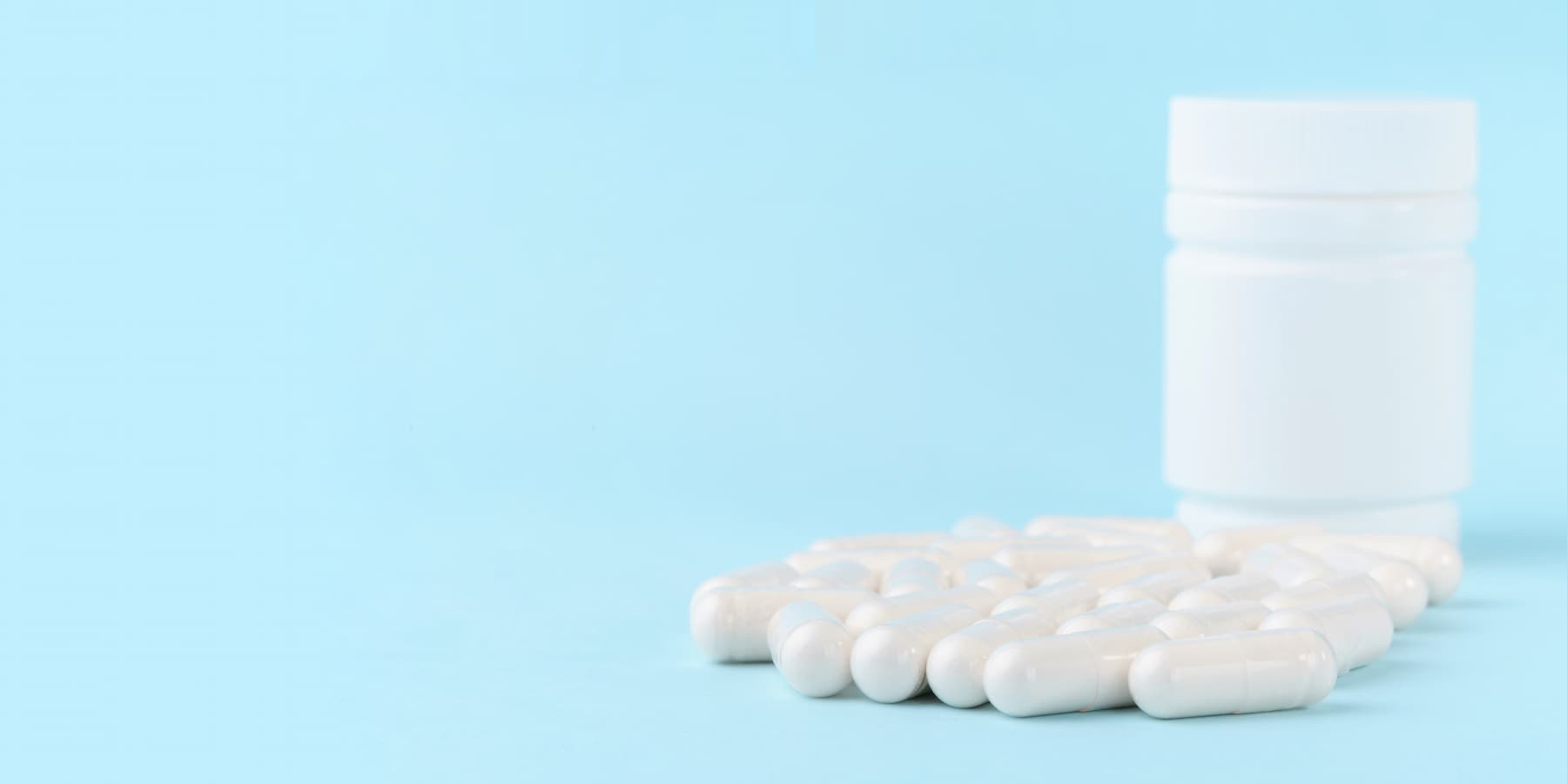
Chondroitin helps the joints and other elements of the body.

Glutathione is one of the most potent antioxidants for supporting the body's health. Find out how it works and where to get it from.

See why hip joints hurt and how to treat their ailments.
